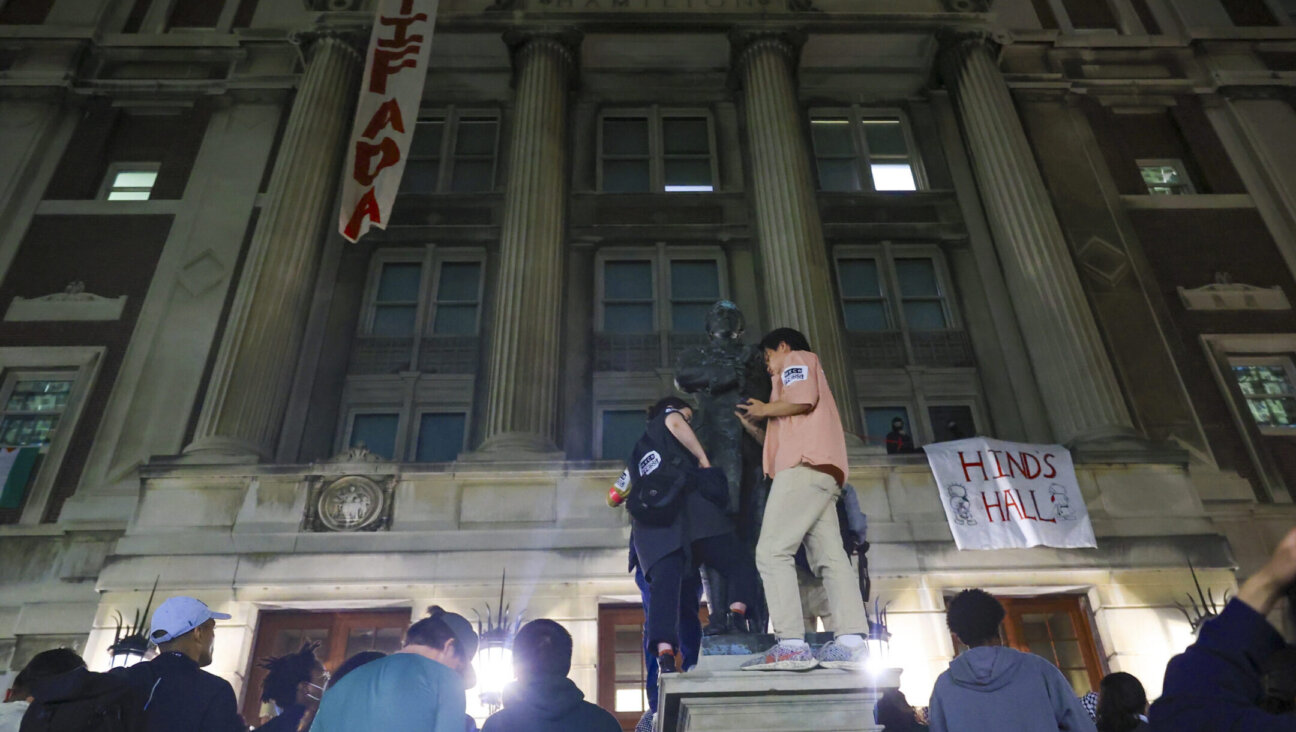New York Federation Seeks $40M From Bankrupt FEGS

The biggest unsecured creditors in the bankruptcy case of the massive social service charity FEGS Health & Human Services are seeking tens of millions of dollars for a joint retirement plan serving thousands who work for New York Jewish charities.
The claims, by UJA-Federation of New York and by a government agency that insures private retirement plans, are for funds owed by FEGS to a large federation-sponsored retirement plan in which FEGS participated.
UJA-Federation claims that FEGS owes more than $40 million to the plan, both for past due annual contributions and for a so-called “withdrawal liability” for effectively leaving the plan.
The retirement plan, which covers 11,600 employees and former employees of UJA-Federation and its network agencies, continues to be responsible for payments to FEGS’s former employees after the group’s 2015 collapse. Now, UJA-Federation is seeking $5.4 million out of FEGS’s assets to cover its annual contributions for the 2013 and 2014 fiscal years, and another $37 million “withdrawal liability,” calculated based on the unfunded portion of the plan.
Even if UJA-Federation receives little or none of the funds it is asking for, its pension plan won’t be in any danger. The plan was 93% funded in late 2014, a healthy ratio that means it will have no trouble meeting commitments to its retirees.
But the claims highlight yet another way in which the ripple effects of the FEGS fiasco have touched all corners of New York’s Jewish not-for-profit apparatus.
“This is just yet another manifestation of what happens when Jewish leaders go bad,” said Mark I. Rosen, a professor of Jewish not-for-profit management at Brandeis University, referring to the post-bankruptcy perceptions of managerial incompetence at FEGS. “It doesn’t just affect their organization… It affects everybody, in ways we can’t fathom.”
Although UJA-Federation’s claims were made last October, they were not reported in the press until now. They are separate from the secured $10 million loan UJA-Federation made to FEGS after the latter declared bankruptcy to help it transfer its programs to new providers.
The collapse of FEGS, which had a $285 million budget before it declared bankruptcy in 2015, is still something of a mystery.
The Forward has reported extensively on mismanagement at the sprawling agency, which was unable even to monitor its own spending, as an attorney for the agency told the bankruptcy court in March. Yet the precise reasons for the 80-year-old charity’s sudden fall are still unclear. And while multiple government agencies are investigating the collapse, no charges have been brought.
What is becoming more apparent, however, is how deeply the collapse penetrated the New York Jewish not-for-profit sphere.
When UJA-Federation’s $40 million in unsecured claims were first mentioned in open court during bankruptcy proceedings, the bankruptcy judge appeared to respond with surprise.
“UJA Pension Fund… has a 40 million dollar claim against FEGS?” U.S. Bankruptcy Judge Robert E. Grossman asked at an October 20 hearing at the federal bankruptcy court in Central Islip, New York. He was interrupting one of FEGS’s attorneys, who had mentioned the claims. (At a March 20 hearing, Grossman jokingly complained about being invited to UJA-Federation fundraising dinners during his days as a practicing attorney. “Every time one of my clients was honored, it was the most expensive thing in the world,” he said.)
UJA-Federation’s $37 million claim, filed October 5, is a demand for what’s known as a “withdrawal liability” from the UJA-Federation plan. Withdrawal liabilities, which are due when any employer leaves a joint retirement plan like the one run by UJA-Federation, are meant to cover the unfunded portions of the payments that will eventually be due to the departing employer’s former employees. The formula for determining withdrawal liabilities is set by the Employment Retirement Income Security Act.
UJA-Federation declined to speak on the record about the claim, but stated in an email to the Forward that the retirement plan was well funded, and that annual contributions to the plan exceed the government-mandated minimum. UJA-Federation said that the size of the withdrawal liability claim was based on a formula written into the plan itself.
“This formula measures liabilities on a very conservative basis so as to minimize the possibility that remaining employers would have to bear any costs for the former employees of the withdrawing employer,” the group said.
The $5.4 million claim for FEGS’s 2013 and 2014 contributions covers fees FEGS owes to the plan for those years. UJA-Federation asserts in its court filing that a portion of that claim is entitled to a higher priority in the bankruptcy payouts under rules that prioritize contributions to employee benefit plans.
In addition to UJA-Federation’s claims on behalf of the pension fund, the Pension Benefit Guaranty Corporation, a federal agency that insures private retirement plans, has filed its own $65.8 million claim for the withdrawal liabilities that FEGS owes to the UJA-Federation’s pension fund.
It’s unclear why PBGC’s claim is twice the size of UJA-Federation’s. According to PBGC officials, it’s standard practice for the agency to file claims in bankruptcy cases like this one.
It’s also far from clear how much money UJA-Federation’s plan can expect to recover. The attorneys representing the unsecured creditors in the FEGS case, Robert Feinstein and Ilan Scharf of Pachulski Stang Ziehl & Jones, did not respond to an inquiry about the UJA-Federation plan’s claim.
What is clear is that the total amount of claims against FEGS, including those connected to the pension fund, are huge — nearly $200 million.
“That’s a bunch of money,” Grossman told FEGS’s attorney during the October 20 hearing.
“It is, Your Honor,” said Adam T. Berkowitz, the attorney representing FEGS.
“For not-for-profit,” Grossman said.
“It is, Your Honor,” Berkowitz said.
“Okay,” Grossman said.
Contact Josh Nathan-Kazis at [email protected] or on Twitter, @joshnathankazis

I hope you appreciated this article. Before you go, I’d like to ask you to please support the Forward’s award-winning journalism this Passover.
In this age of misinformation, our work is needed like never before. We report on the news that matters most to American Jews, driven by truth, not ideology.
At a time when newsrooms are closing or cutting back, the Forward has removed its paywall. That means for the first time in our 126-year history, Forward journalism is free to everyone, everywhere. With an ongoing war, rising antisemitism, and a flood of disinformation that may affect the upcoming election, we believe that free and open access to Jewish journalism is imperative.
Readers like you make it all possible. Today is the last day of our Passover Pledge Drive and we still need you to step up and make a gift to sustain our trustworthy, independent journalism.
Make a gift of any size and become a Forward member today. You’ll support our mission to tell the American Jewish story fully and fairly.
— Rachel Fishman Feddersen, Publisher and CEO
Join our mission to tell the Jewish story fully and fairly.
Today is the last day to contribute.
























